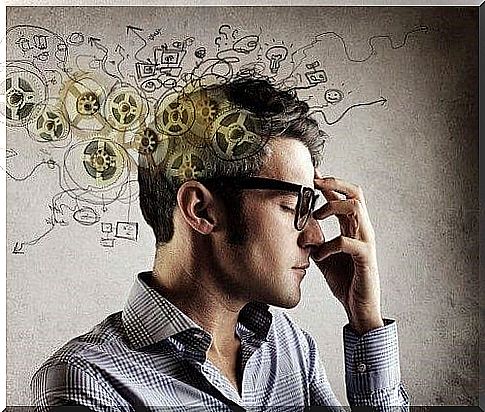Be Rational And Solve Problems

It seems that more and more people are letting themselves be carried away by emotions instead of using logic , of being rational when they have to make a decision. But why does it cost us so much to be rational ? This question has been the cause of numerous scientific debates, research and theories. In this article we will look at some key points on the subject.
We will prove that people are much less rational than we think and we will set out the reasons in a systematic form. No one is exempt from this lack of logic. We are all irrational most of the time. The more complex the decisions we have to make, the more we tend to be.
Irrationality can only be defined in contrast to rationality. We must therefore first ask ourselves what it means to be rational.
Two forms of rationality
Rational thinking comes to the presumably correct conclusion, if one considers the knowledge one has. Decisions made in this way are more complicated. A decision can only be evaluated if all variables are known.
The person guided by rationality acts in a way that is more likely to achieve his or her goal.

Why is it so difficult to be rational?
The book Irrationality, Why Our Mind Tricks Us and How We Can Avoid It answers the question of why it is often so difficult to reason and solve problems . It conveys a skeptical but hopeful view of our ability to reason and act accordingly. It also teaches various techniques to improve this skill.
It may be that not all errors are solved through the procedures suggested by the author, Stuart Sutherland. However, knowing its content, most of us probably wouldn’t have made many of the bad decisions that directly or indirectly impacted our lives.
Studying the mechanisms of irrationality is a path of self – knowledge and, consequently, of knowledge of the functioning of society. Obedience, conformism, the error of availability, organizational madness, misplaced consistency, the halo effect, the spectator effect, stereotypes … are some of the characteristics of thought studied as possible sources of our wrong way of reason.
On the other hand, being rational requires making decisions. In this sense, if our choices lead us to the desired goals, we will be rational people. If not, no.
Psychological factors
There are several psychological factors that lead us to make adequate decisions. The main ones are the following:
- The ability to postpone judgment
- The complexity of the decision
- The influence of emotions
Are we aware of being deceived by our irrationality?
Beliefs don’t always come from reality. Sometimes they arise from the need to maintain our self-image. For example, if we believe that others are untrustworthy, perhaps this is due to our need to see ourselves as honest people.
So, at times, our most inflexible beliefs only hide a deep fear. They can also be the projection of one’s own characteristics that we do not want to accept as they would conflict with the idealized image of ourselves.

Sometimes we are too quiet and we don’t want to change. When we believe in something, we adopt a comfortable position. This way we don’t feel obligated to change or pursue anything else. Once a belief is taken for granted, no matter what, our search is over. But sometimes this can cause reasoning errors.
Can we train reasoning?
Our rational being can and must be trained. From an early age, they teach us the conduct regarding personal hygiene: brushing your teeth, bathing, cutting your nails, eating, dressing. But what about psychological conduct and mental hygiene ?
We must start from the assumption that, at times, the mind deceives us. The reality we observe first passes through certain filters. This means that in the face of the same event (such as changes, fractures, unexpected situations), it is contemplated as a wonderful opportunity or as a negative fact.
Such thought filters are so powerful that they act as deceptions. They grab us and cause us emotions that are not always pleasant. Furthermore, they can lead us to make decisions or reach conclusions that are not entirely correct.
In conclusion, by taking care of our mental hygiene, we can shun our own mental deceptions.
How can this be done?
By following these rational principles, it will be easier to reason and solve our problems.
- Look for evidence or arguments contrary to our beliefs.
- Don’t judge a statement as true because we believe part of it is.
- Remember that changing your mind in the light of new evidence is a symptom of strength, not weakness.
- Try not to get carried away by an action that, initially, we would not have chosen.
- Do not allow ourselves to be led by others to take actions that we would not do on our own.
Perhaps not all errors of thought are solved in the principles suggested in this article. However, it is very likely that, with some effort, it will be possible for us to be more rational when it comes to making decisions and understanding how the world really works.









